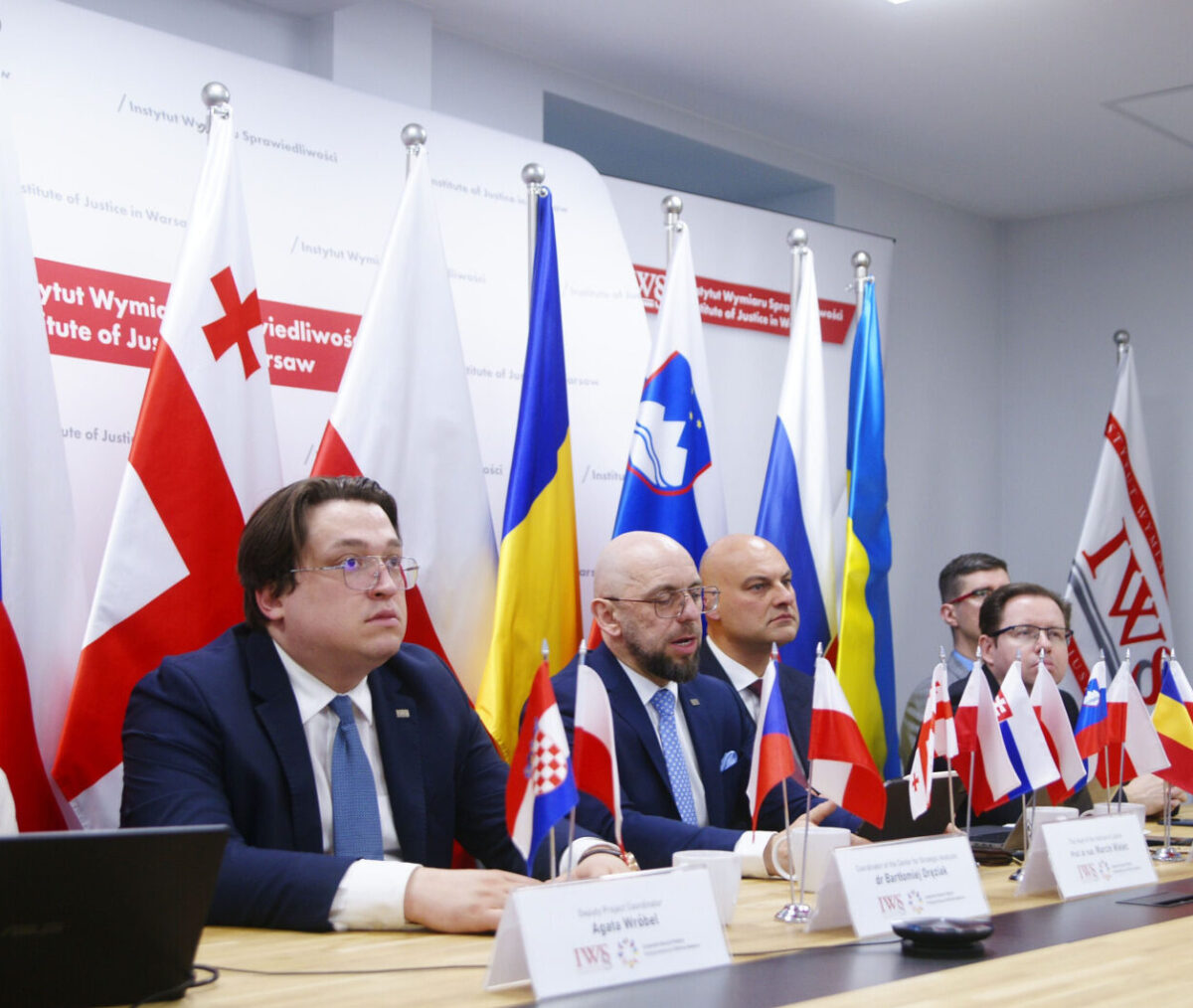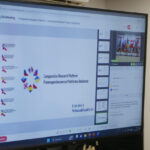Research platform from the Baltic to the Balkans
2023-04-16

The Comparative Research Platform 2023 project was inaugurated, involving scientists from the Czech Republic, Georgia, Croatia, Slovenia, Slovakia, Romania and Ukraine. – This cooperation of ours should set the tone for scientific research in Europe, and the results of our research should be the vanguard and a reliable model for Western European countries as well,” said Prof. Marcin Wielec, director of IWS.
The inauguration of the Comparative Research Platform 2023 took place on April 5. The video conference recalled the international research achievements of the Justice Institute. – Together with our Hungarian partners, we are already involved in two huge projects in the form of the Polish-Hungarian Research Platform. In addition, we are working closely with Norway for the third year under Norwegian grants,” said Dr. Marcin Wielec, director of the Justice Institute and professor at Cardinal Stefan Wyszynski University in Warsaw.
In 2022, the Justice Institute piloted smaller-scale scientific projects with researchers from Croatia, Slovakia and Ukraine. The initiative is growing rapidly, as this year IWS is coordinating a much larger research project of scientists already from seven Central European countries – the Czech Republic, Georgia, Croatia, Slovenia, Slovakia, Romania and Ukraine.
There is a need to join forces in Central Europe, to create a comprehensive platform for the exchange of ideas and thoughts that corresponds to the heritage of the countries of this region, which takes into account their specificities. – In our opinion, this part of Europe lacks a strong research and scientific center that would unite the scientific community. Our dream is scientific and research cooperation and the creation of a broad scientific and research platform – from the Baltic to the Balkans and beyond. This cooperation should set the tone for scientific research in Europe, and the results of our research should be the vanguard and a reliable model for Western European countries as well. This is a difficult task, because so far the monopoly on scientific research and research grants is mainly held by scientific units from Western Europe,” Prof. Wielec stressed.
Researchers in the Comparative Research Platform 2023 will be involved in four areas. Legal and comparative research will cover the legislative process of constitutional change, the rule of law, administrative court reform and judicial efficiency. – Our goal is to conduct an in-depth study and develop numerous de lege ferenda proposals that should be applicable to both the theory and practice of law,” said Dr. Paweł Sobczyk, deputy director of the IWS and dean of the Faculty of Law and Administration at Opole University.
The first team will research the legislative process aimed at amending the constitution both in light of European integration and the constitutional identity of individual states. – The main task of the team is to clarify the mechanisms and factors affecting the process of constitutional change in a democratic state under the rule of law. And during the research, an analysis of constitutional identity, judicial control of constitutional change and the impact of the European integration process on changes in the national constitutional system should be carried out,” Prof. Sobczyk said.
The second international team of scholars will study the rule of law, determining the proper understanding of the concept of the rule of law and the rule of law under EU law. – The main task is to clarify the concept of the rule of law and its correlation with the EU rule of law, Prof. Sobczyk pointed out.
The third team of researchers will study the reform of administrative justice, learning about its mechanisms, structure and organization, as well as the functioning of administrative justice. – Important topics in this team are the study of the problem of interpretation of administrative law, the impact of the integration processes of Europe on the development of administrative justice in national law, and the development of electronic administrative justice, the deputy director of the IWS said.
The final fourth team will deal with the efficiency of the judiciary, that is, the efficiency of court cases handled, the time taken to process them, and the complexity of cases that come before the courts. – This team will deal with the efficiency of the human factor in the administration of justice, models for organizing an efficient and fair justice mechanism, and will also study the causes of delays in court proceedings, Prof. Sobczyk explained.
The Comparative Research Platform 2023 project plans to organize at least 24 scientific seminars, culminating in an international scientific conference in November 2023 in Poland. The research of the scientific teams will also result in the publication of peer-reviewed monographs.











